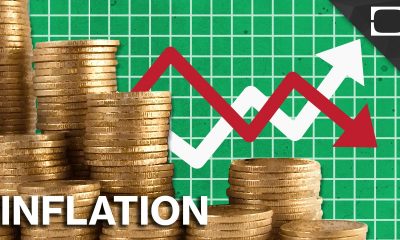Business
Protect the poor from galloping inflation, World Bank advises Nigerian govt, others
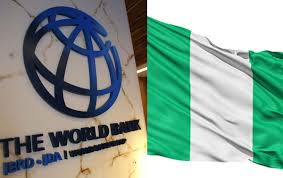
… lowers Nigeria’s economic growth forecast
The World Bank has called on the Federal Government of Nigeria and other governments in the Sub-Saharan African region to urgently implement measures to restore macro-economic stability and protect the poor from the high inflation and current slow economic growth.
The World Bank has also lowered its economic growth forecast for Nigeria in 2023 to 3.2 per cent from 3.3 per cent due to the slowdown in global growth, the war in Ukraine and declining demand from China for commodities produced in Africa.
It projected that the Sub-Saharan African region would record a lower economic growth of 3.3 per cent in 2022 as against the 4.1 per cent recorded in 2021.
The forecasts were contained in the October edition of the World Bank’s Africa’s Pulse, a biannual analysis of the near-term regional macroeconomic outlook, and economic growth in Sub-Saharan Africa (SSA).
Highlighting the growth factors for Nigeria’s economy, the World Bank said, “The Nigerian economy is projected to slow in 2023, down to 3.2 per cent (from 3.3 per cent) and persist at this level the following year. Growth will be supported mainly by the rebound in private consumption prompted mostly by accommodative monetary policy as inflationary pressures subside.
“Private consumption expenditure is forecast to decrease this year and grow next year. This performance will likely continue in 2024. On the production side, growth in 2023 will be supported by industry (with the growth of 5.1 per cent) with the mega-refinery project.”
On its growth forecast for the Sub-Saharan African region, the World Bank said: “Economic growth in Sub-Saharan Africa (SSA) is set to decelerate from 4.1% in 2021 to 3.3% in 2022, a downward revision of 0.3 percentage points since April’s Pulse forecast, mainly as a result of a slowdown in global growth, including flagging demand from China for commodities produced in Africa.
On the factors undermining economic growth in SSA, the World Bank said, “The war in Ukraine is exacerbating already high inflation and weighing on economic activity by depressing both business investments and household consumption. As of July 2022, 29 of 33 countries in SSA with available information had inflation rates over 5% while 17 countries had double-digit inflation.
“Elevated food prices are causing hardships with severe consequences in one of the world’s most food-insecure regions. Hunger has sharply increased in SSA in recent years driven by economic shocks, violence and conflict, and extreme weather. More than one in five people in Africa suffer from hunger and an estimated 140 million people faced acute food insecurity in 2022, up from 120 million people in 2021, according to the Global Report on Food Crises 2022 Mid-Year Update.
“The interconnected crises come at a time when the fiscal space required to mount effective government responses is all but gone. In many countries, public savings have been depleted by earlier programs to counter the economic fallout of the COVID-19 pandemic, though resource-rich countries in some cases have benefited from high commodity prices and managed to improve their balance sheet.”
“Debt is projected to stay elevated at 58.6% of GDP in 2022 in SSA. African governments spent 16.5% of their revenues servicing external debt in 2021, up from less than 5% in 2010. Eight out of 38 IDA-eligible countries in the region are in debt distress, and 14 are at high risk of joining them. At the same time, high commercial borrowing costs make it difficult for countries to borrow on national and international markets while tightening global financial conditions are weakening currencies and increasing African countries’ external borrowing costs.”
Stressing the need for governments to improve the efficiency of existing resources and to optimize taxes in response to the above challenges, the World Bank added that, “In the agriculture and food sector, for example, governments have the opportunity to protect human capital and climate-proof food production by re-orienting their public spending away from poorly targeted subsidies toward nutrition-sensitive social protection programmes, irrigation works, and research and development are known to have high returns.”
Auto
Appeal court takes over NURTW case as NIC withdraws

Appeal court takes over NURTW case as NIC withdraws
The National Industrial Court has withdrawn from a case involving Alhaji Najeem Usman Yasin, Board of Trustees chairman of the National Union of Road Transport Workers (NURTW), and Alhaji Tajudeen Ibikunle Baruwa’s ambition to return as president of the union over lack of jurisdiction.
The industrial court’s decision was made to avoid conflict with the Court of Appeal, where the matter is already being heard.
Before the NIC announced its decision to hands-off the case, the defendants’ counsel, Mr. O.I. Olorundare SAN, had informed the court that the matter is currently before the Court of Appeal, Abuja division, and that the industrial court could not continue to adjudicate on the same matter.
The counsel cited authorities to support his claim, adding that the National Industrial Court does not have concurrent jurisdiction with the Court of Appeal.
The presiding judge, O.O. Oyewunmi, struck out the case, stating that the Appeal Court had taken over the matter and that the Industrial Court must respect the hierarchy of courts.
Alhaji Yasin and six others took the case to the Appeal Court, challenging the decision of the industrial court recognising a delegates’ conference held on May 24, 2023, where Baruwa was proclaimed as President of the union for a second term in office.
With the latest NIC judgement, both parties will now proceed to defend their positions at the Court of Appeal and await the final judgement.
Business
Multichoice shuns court order, proceeds with increase of DSTV, Gotv packages
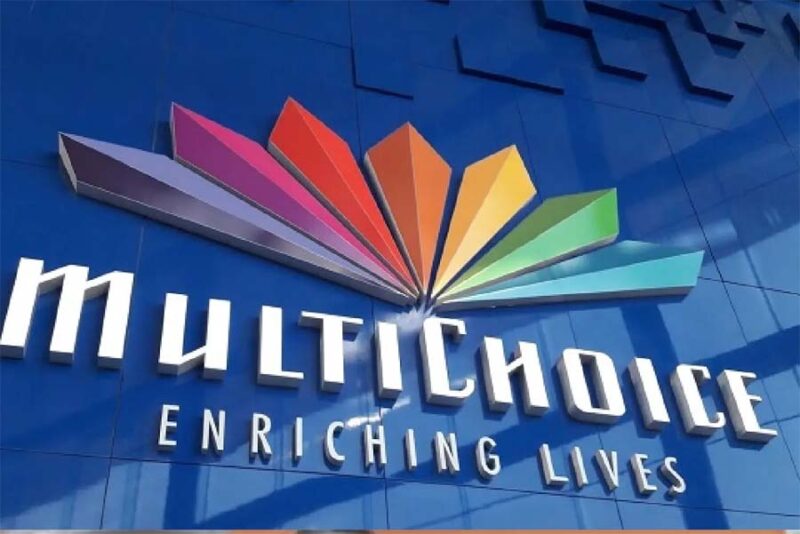
Multichoice shuns court order, proceeds with increase of DSTV, Gotv packages
Despite the intervention of the CCPT, Multichoice Limited has proceeded to increase packages price for DSTV and GOTV as announce on Wednesday last week.
Newstrends had earlier reported that the corporation announced that the new rates will go into effect on Wednesday, May 1, 2024, in a statement.
Meanwhile, on Monday, MultiChoice Nigeria Limited was ordered by the Competition and Consumer Protection Tribunal (CCPT) in Abuja to suspend the planned prices and tariffs hike on packages and services.
READ ALSO:
- Ogun frees 49 inmates to decongest prisons
- JAMB, NCC in talks to produce special SIM for students
- Labour-FG face-off imminent as NLC rejects new salary increase
The three-member tribunal, presided over by Saratu Shafii, gave the interim order following an ex-parte motion moved by Ejiro Awaritoma, counsel for the applicant, Festus Onifade.
News prices includes: DStv, Premium bouquet, the price moved from N29,500 to N37,000; Compact+ from N19,800 to N25,000; Compact from N12,500 to N15,700; Confam from N7,400 to N9,300, among others.
For GOtv users, Supa+ increased from N12,500 to N15,700; Supa moved from N7,600 to N9,600; Max from N5,700 to N7,200; Jolli, from N3,950 to N4,850, among others.
Multichoice shuns court order, proceeds with increase of DSTV, Gotv packages
Business
As controversy over Maersk-FG port investment rages, Onanuga says no $600m deal signed
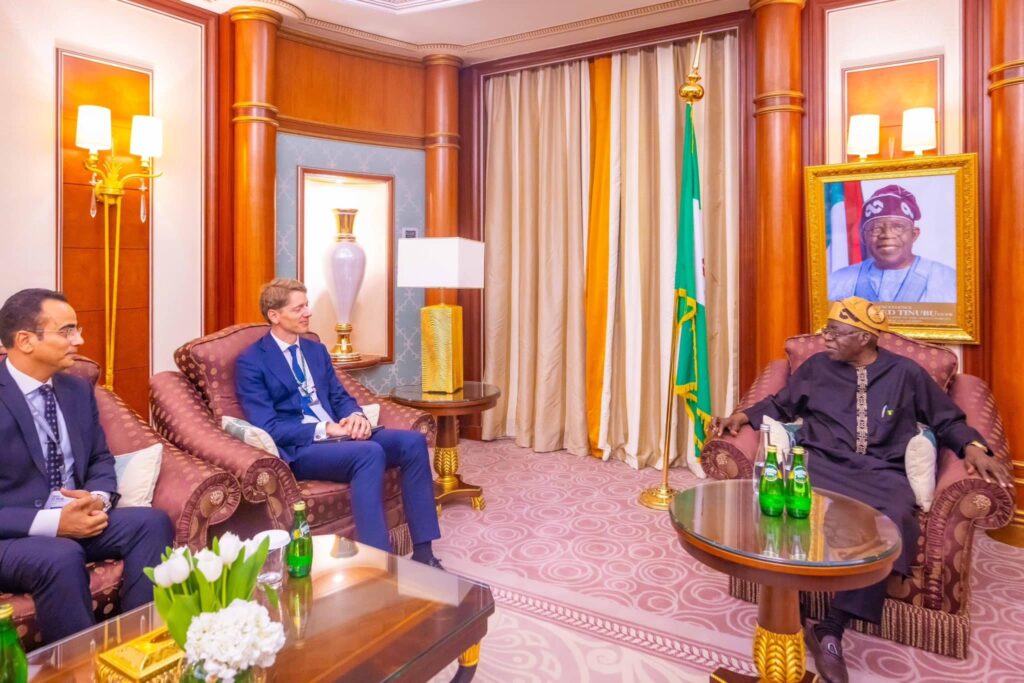
As controversy over Maersk-FG port investment rages, Onanuga says no $600m deal signed
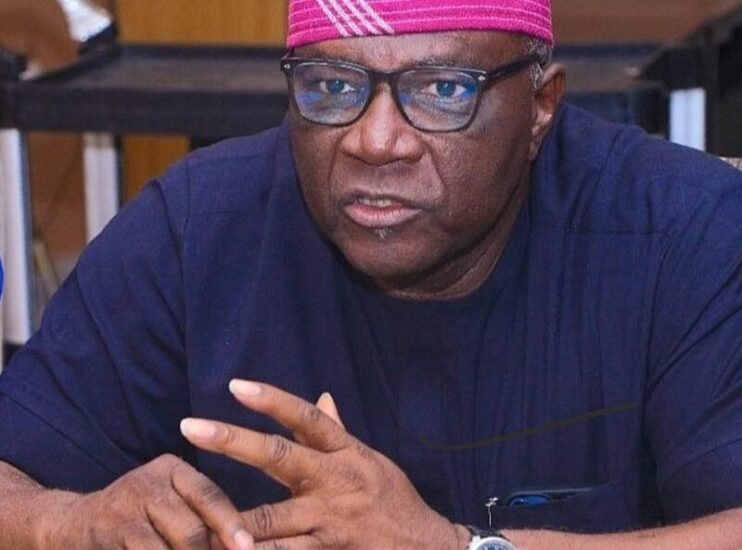
The Nigerian government and a shipping giant, Maersk, have not signed any investment agreement, Bayo Onanuga, special adviser on information and strategy to President Bola Tinubu, has said.
Onanuga was reacting to the controversy surrounding the reported sealing of a $600 million deal for the development of the nation’s seaports.
He said there was only talk “of possible investment in Nigeria” by Maersk.
Interestingly Onanuga had hinted about the deal in a tweet said to have been pulled down after the social media backlash.
After President Tinubu’s discussion with Maersk’s Chairman Robert Uggla on April 28, on the sidelines of the World Economic Forum Special Meeting in Riyadh, Saudi Arabia, the presidency had released a statement announcing that the shipping company had pledged to inject $600 million into the Nigerian seaport industry.
“Danish shipping company, A.P Moller-Maersk plans $600m investment in Nigeria. Danish shipping and logistics company A.P Moller-Maersk has disclosed a planned investment of $600 million in Nigeria to accommodate more container shipping services in Nigerian ports,” Onanuga wrote on X.
In a statement, Tinubu’s spokesperson, Ajuri Ngelale, also said “President Tinubu meets Chairman of Danish shipping giant Maersk, secures $600 million investment in Nigerian seaport infrastructure.” He quoted Uggla as saying, “We believe in Nigeria, and we will invest $600m in existing facilities and make the ports accommodating for bigger ships.”
In response to this. Maersk officials have denied any such agreement and stress no deals have been signed.
Onanuga in a new report by TheCable, an online news platform admitted no agreement on investment had been reached by the two parties.
“I think the statement issued by Maersk did not talk about a deal. There was no deal according to that statement that I read.
“However, there was talk of investment,” the special adviser said.
“No document or agreement was signed, so there was no deal. But there was talk of a possible investment in the country.
“So, go and read the statement again. They never said any deal was signed between the Nigerian government and the Dutch company. There was nothing like that.”
Onanuga however said the shipping company did not expressly deny that there was an investment talk.
He said people are “unnecessarily giddy over nothing.
-

 metro2 days ago
metro2 days agoLabour Day: Nigerian workers are dedicated, resilient, says NURTW leader
-
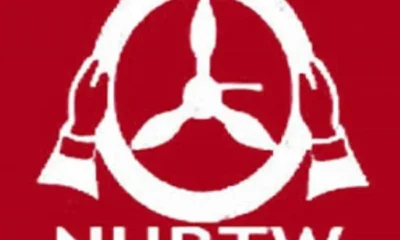
 Auto1 day ago
Auto1 day agoAppeal court takes over NURTW case as NIC withdraws
-
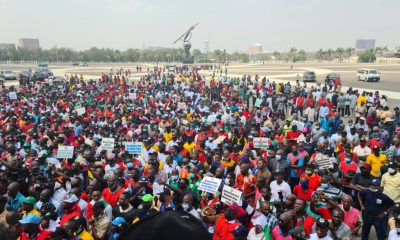
 News2 days ago
News2 days agoFG approves salary increase for civil servants, military, police
-
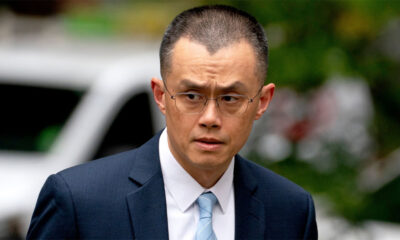
 International2 days ago
International2 days agoBinance founder bags jail term in US
-

 metro3 days ago
metro3 days agoWoman arrested in Ogun after husband commits suicide
-
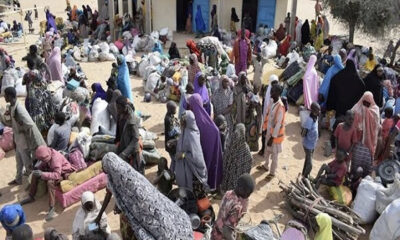
 News2 days ago
News2 days agoFG set to repatriate 20,000 Nigerians from Chad, Cameroon
-

 metro11 hours ago
metro11 hours agoSecurity forces, vigilantes arrest kidnapper terrorising communities in Kogi
-

 News2 days ago
News2 days agoAmid fuel scarcity, petrol marketers threaten to withdraw services over ₦200bn debt









